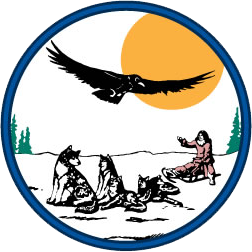Meeting Protocol
Welcome
The Board of Education welcomes you to its meetings. Your interest will help the Board make decisions that reflect the needs and desires of your community. Agendas are available at the meetings or on the School Board’s link located on the district’s website.
The tentative agenda is sent by email to be posted (5) days prior to the meeting. The minutes of public meetings are also available at the YKSD office. Written comments addressed to the Board may be emailed, mailed or delivered to the YKSD Office.
About the Board
Governing the school district for the public, the Board of Education determines school district policy and employs the superintendent, the administrative staff, and the teachers who are responsible for daily school operations.
The seven voting members of the Board are elected at-large for three-year terms; two advisory-nonvoting members represent the Voluntary Public School Choice Grant, and the Regional Student Council.
The Board of Education works to develop and improve our school program; its responsibilities include:
Setting districtwide goals
Adopting the operating budget
Approving curriculum and textbooks
Securing adequate school financing
Planning and maintaining facilities
Enforcing student discipline policy
Acting as a board of appeal
Overseeing district legal matters
Communicating with the public
Regular Meetings
The Board meets every nine weeks throughout the school year.
What happens at a Board Meeting?
At regular meetings, board members discuss and vote on board committee and administrative recommendations and on items that establish or amend district policy. The Board adopts policies to improve student performance and enhance school programs and acts on matters such as personnel, appropriations, school facilities, and recognition of excellence.
Order of Business
1. Call to Order
2. Roll Call
3. Introduction of Guests
4. Approval of Minutes
5. Identification of Persons desiring to address the Board
6. Adoption of Agenda
7. Reports
8. Discussion
9. Old Business
10. New Business
11. Items Introduced by Board Members for next Agenda
12. Board Comments
13. Date and Place of next Board Meeting
14. Adjournment
The board president conducts meetings using standard parliamentary procedures and all Board meetings conform to Alaska’s Open Meeting Act (A.S. 44.62.310-312).
Public Testimony . . .
Who may speak at a Board meeting?
Anyone may speak at board meetings. The Board also accepts written testimony, either delivered, mailed to its office, or Email Carla Saunders
Communications addressed to the Board are distributed to all board members.
What topics are appropriate?
Your testimony is most effective when addressed to specific agenda items or matters of general concern. Other information, questions, or problems can usually be addressed by district staff (see contact numbers listed on the web site). When addressing the Board, please note that slander laws may apply to public criticism of individuals (for example, school district employees) identified by name.
Public Testimony Rules
Whenever you testify to the Board, please start by stating your name for the record. Public comments are limited to three (3) minutes per person.
Individual Problems and Complaints
To ensure due process and respect for individual rights, the district maintains a formal process for handling complaints against individuals. A problem involving an individual or specific incident is best handled through administrative channels, with the Board as a source of appeal only beyond the superintendent level.
Can the Board answer me today?
If the question can be answered immediately, it will be, but most issues before the Board are too complex to be resolved at the first hearing. When matters of broad public concern are involved, the Board needs sufficient time to study all aspects and listen to the ideas of others. Action will occur as promptly as careful consideration allows.
Other Board Meetings
Special Meetings: scheduled for action on matters that cannot wait until the next regular meeting. Only the specific topic on the special meeting agenda can be discussed.
Work Sessions: scheduled for review of a subject in greater depth than is possible during a regular meeting. No voting or public comment takes place, but the public is welcome to listen.
Executive (Closed) Sessions: called only for discussion of personnel, fiscal, or other matters that might reflect negatively on someone’s character or damage school district finances if publicly discussed, such as litigation, negotiations, or hearings involving students or employees. NO voting may take place in the executive session; votes must occur in public.
Committee Meetings: School Board standing committees are held throughout the school year for Native Language, Budget, Building, Certificated Hiring, Curriculum, Legislative, Negotiations, Policy and Technology; others are formed on an as-needed basis. For more information on committee membership, meetings, or agenda, contact the board office or a board member.
More Questions?
Problems tend to be resolved more quickly when expressed to the people most directly involved. If you have a problem relating to an individual student or school, please contact the teacher or building principal. Problems not solved at this level may be appealed to a program coordinator or department head. If your concern remains unresolved, it can be taken to the superintendent of schools, and finally, to the Board of Education.
If you need help resolving an issue or obtaining information, please call the Board Secretary at 374-9416.
